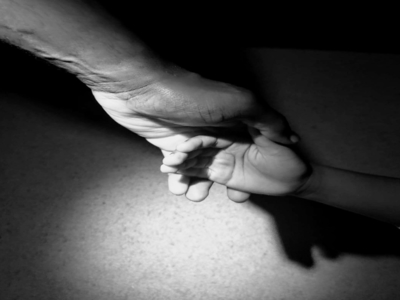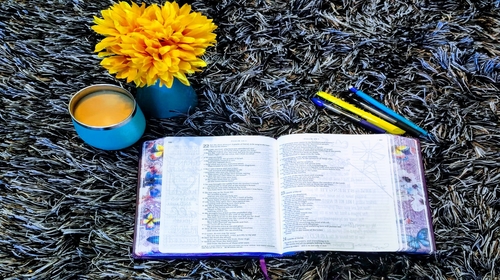Thanksgiving, a daily practice

I always thought that thanksgiving always went hand in hand with being happy. Anytime I was sad I never believed I could be thankful. I mean who is thankful when they are going through hardship. Imagine not having money to pay your bills but you are still thanking God for his mercies and for the money you have to pay for bills. While thinking about this topic I realized that being thankful is an indication of faith and joy. The ability to be thankful while going through rough times of depression, poverty, loss and desolation can only be given by God above. As kids, we are taught that “please,” and “thank you” are magic words that compel adults to give us what we want. We say it so often that it has become an instinct that we do not mean. As we journey through understanding what it means to be truly thankful, my sincere hope is that we all learn to practice being thankful daily. John F. Kennedy said,
“As we express our gratitude, we must never forget the highest appreciation is not to utter words but to live by them.”
Practicing is defined as actively pursuing or engaging in a particular profession, occupation, or way of life. We practice the things we want to get better at. We make a deliberate action towards the continuous doing of a thing. Just like a dancer wants to compete he/she needs to continually do the same thing repeatedly until they get it right. Ziad K. Abdelnour the Founder, President & CEO of Blackhawk Partners, a private equity company says this about practice
“Do not practice until you get it right, practice until you cannot get it wrong.., ever.”
This is the approach I want us to take when thinking about how to practice thanksgiving. To be able to practice thankfulness we need to figure out what tools we need to have to assist and guide us on the way. Just as a gymnast has routines they practice daily to get stronger, we too must have tools to make them strong enough to practice thanksgiving.
What do we need to have in order to practice effective thankfulness?
- What is thankfulness according to the Bible? This is not a polite “thank you Lord” when something goes right our way. It is an outpouring of praise to God for who he is and what he has done. Psalm 100:4-5 says
“Give thanks to Him, bless His name. For the Lord is good; His lovingkindness is everlasting, and His faithfulness to all generations.”
Being thankful is not a function of my emotions. If I use my emotions as a measure for when and how I am thankful, I will never show any gratitude to God.
“Praise the LORD because he is good to us, and his love never fails.” 1Chro 16:34.
It does not say praise the Lord when you feel good because he is good to us. Period. Thank the Lord even when you are feeling down because you know he is good to you. Once you understand that a thankful heart is a heart that believes without a doubt that God is good to you, you start seeing thankfulness as a way of life not a thing to do when you feel like it. Repeat the scripture over and over until you understand it deep within your soul. - Start small. Start by picking one thing in your life that you perceive is good. I say perceive because our human view of what is good is subjective to the person. It may be your job, your spouse, your body, your family etc. Whatever it is, take time to think about why you like it and why you are thankful for that thing. This is especially hard because your mind automatically goes to what you perceive as bad in your life. It’s just the way our brain works. Psychologists call it the brain's negative bias. This means we tend to register negative stimuli more readily than positive ones. I’m not sure why God built us this way, I only know that we need Him to change our negative bias to positive ones. When you realize you are digressing from the good to the negative, start praising God for who He is. Sonja Lyubomirsky, an American professor and the author of “the how of happiness” once said.
“Gratitude is an antidote to negative emotions, a neutralizer of envy, hostility, worry, and irritation. It is savoring; it is not taking things for granted; it is present-oriented.”
-
Write down your gratitude. What are you thankful for? Write it down. I have learned that writing things down is therapeutic. I look back months later to what I wrote down and I feel very thankful for what I went through at that time. I remember there were times I would spend all day in the hospital and things were not going well, but I had made a vow to God that I would write something down each day I was grateful for. Sometimes, all I could write down was “thank you lord for oxygen”, “thank you Lord for my car and gas in it.” My all-time favorite is “thank you lord for waking me up.” Psalm 103:2 says
“With all my heart I praise the LORD! I will never forget how kind he has been."
As humans we are prone to forgetting things, so we write it down. Another verse says,
“Remember the miracles He performed, the amazing things He did, and the judgments He pronounced.” Psalm 105:5.
It is easier to remember when we write it down.
-
Speak out. Talk about what you are thankful for. Gratitude is only gratitude when it is expressed. Learn to express how thankful you are. Only when you do this, will you be truly grateful. William Arthur Ward said,
"Feeling gratitude and not expressing it is like wrapping a present and not giving it."
If you do not express your gratitude to a person, how will they know they did something good for you? You need to tell it. Psalm 71:15 says
"All day long I will tell the wonderful things you do to save your people. But you have done much more than I could possibly know”.
I know that we do not always believe we have something to be thankful for but there is always that one thing you have that someone else wants.
"Reflect upon your present blessings, of which every man has plenty; not on your past misfortunes, of which all men have some."
Remember to speak it out and speak it loudly.
As we go into the second week of the thankfulness challenge, let us learn to be thankful for the things we have. I’ll end with a quote
"Let us rise up and be thankful, for if we didn't learn a lot today, at least we learned a little, and if we didn't learn a little, at least we didn't get sick, and if we got sick, at least we didn't die; so, let us all be thankful."
Let’s be thankful for this minute, because we have never experienced it before.







Leave a Comment